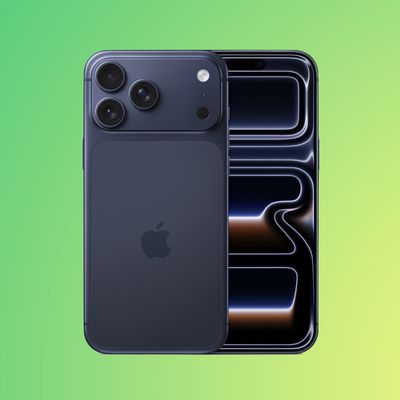Today marks 15 years since Apple released the popular iPhone 4 and launched FaceTime, its proprietary video calling service.

The iPhone 4 first became available to customers on June 24, 2010, following its unveiling by then-CEO Steve Jobs at the company's Worldwide Developers Conference earlier that month. It was the first iPhone to feature a high-resolution "Retina" display, with a pixel density of 326 pixels per inch, making individual pixels imperceptible at a standard viewing distance. Apple described it at the time as offering "four times the pixel density of previous displays," resulting in crisper text and sharper images.
The device introduced a new industrial design made from stainless steel and glass, with squared edges that diverged significantly from the rounded plastic form factor of previous iPhones. It also featured Apple's first custom-designed system-on-a-chip, the A4, which debuted in the original iPad. The A4 provided improved performance and battery life compared to the iPhone 3GS. The iPhone 4 also marked the debut of the front-facing camera on an iPhone, enabling selfies for the first time, as well as FaceTime video calling.
The iPhone 4 shipped with iOS 4, which introduced several new software features including background functionality for third-party apps, home screen folders, and a unified Mail inbox. It was also the first iOS version to drop support for an iPhone, the original model.
One of the most infamous issues surrounding the iPhone 4 was the so-called "antennagate" controversy. Due to the external stainless steel antenna band doubling as a signal receiver, some users experienced signal degradation when holding the device in a way that bridged the antenna gaps. Apple addressed the issue in a press conference in July 2010, offering free bumper cases to affected customers and explaining that most smartphones exhibited similar signal attenuation under certain conditions.
Despite the controversy, the iPhone 4 was Apple's most successful smartphone launch at the time. The company reported pre-orders of over 600,000 units on the first day alone, and long queues were seen outside Apple Stores on launch day across the United States and other countries. The model went on to become one of the best-selling iPhones of its era and remained available in various forms until 2014, including as a low-cost option with reduced storage.
FaceTime was initially limited to Wi-Fi connections and available only between iPhone 4 devices running iOS 4. With the device already signed into the user's Apple ID, making a call was simple and initiated directly from the Phone or Contacts app. In 2011, Apple expanded FaceTime support to the iPad 2 and the Mac. FaceTime Audio was introduced with iOS 7 in 2013.
In iOS 12, Apple added support for Group FaceTime with up to 32 participants, and in 2021, FaceTime links brought limited compatibility with Android and Windows via web browsers. While Apple initially described FaceTime as "an open industry standard," the company never published the protocol, and the feature has remained exclusive to Apple platforms.




















